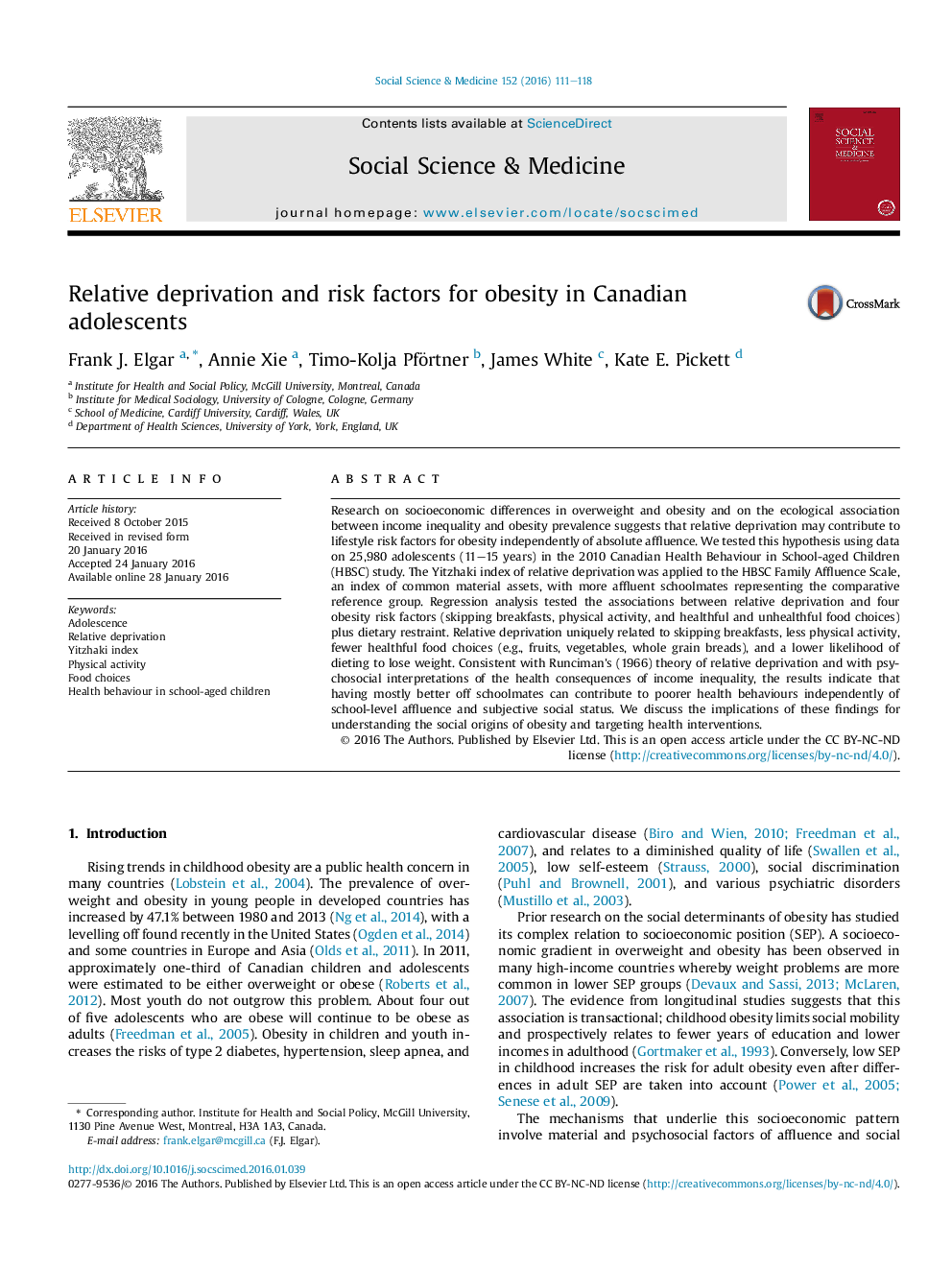| Article ID | Journal | Published Year | Pages | File Type |
|---|---|---|---|---|
| 7330587 | Social Science & Medicine | 2016 | 8 Pages |
Abstract
Research on socioeconomic differences in overweight and obesity and on the ecological association between income inequality and obesity prevalence suggests that relative deprivation may contribute to lifestyle risk factors for obesity independently of absolute affluence. We tested this hypothesis using data on 25,980 adolescents (11-15 years) in the 2010 Canadian Health Behaviour in School-aged Children (HBSC) study. The Yitzhaki index of relative deprivation was applied to the HBSC Family Affluence Scale, an index of common material assets, with more affluent schoolmates representing the comparative reference group. Regression analysis tested the associations between relative deprivation and four obesity risk factors (skipping breakfasts, physical activity, and healthful and unhealthful food choices) plus dietary restraint. Relative deprivation uniquely related to skipping breakfasts, less physical activity, fewer healthful food choices (e.g., fruits, vegetables, whole grain breads), and a lower likelihood of dieting to lose weight. Consistent with Runciman's (1966) theory of relative deprivation and with psychosocial interpretations of the health consequences of income inequality, the results indicate that having mostly better off schoolmates can contribute to poorer health behaviours independently of school-level affluence and subjective social status. We discuss the implications of these findings for understanding the social origins of obesity and targeting health interventions.
Keywords
Related Topics
Health Sciences
Medicine and Dentistry
Public Health and Health Policy
Authors
Frank J. Elgar, Annie Xie, Timo-Kolja Pförtner, James White, Kate E. Pickett,
